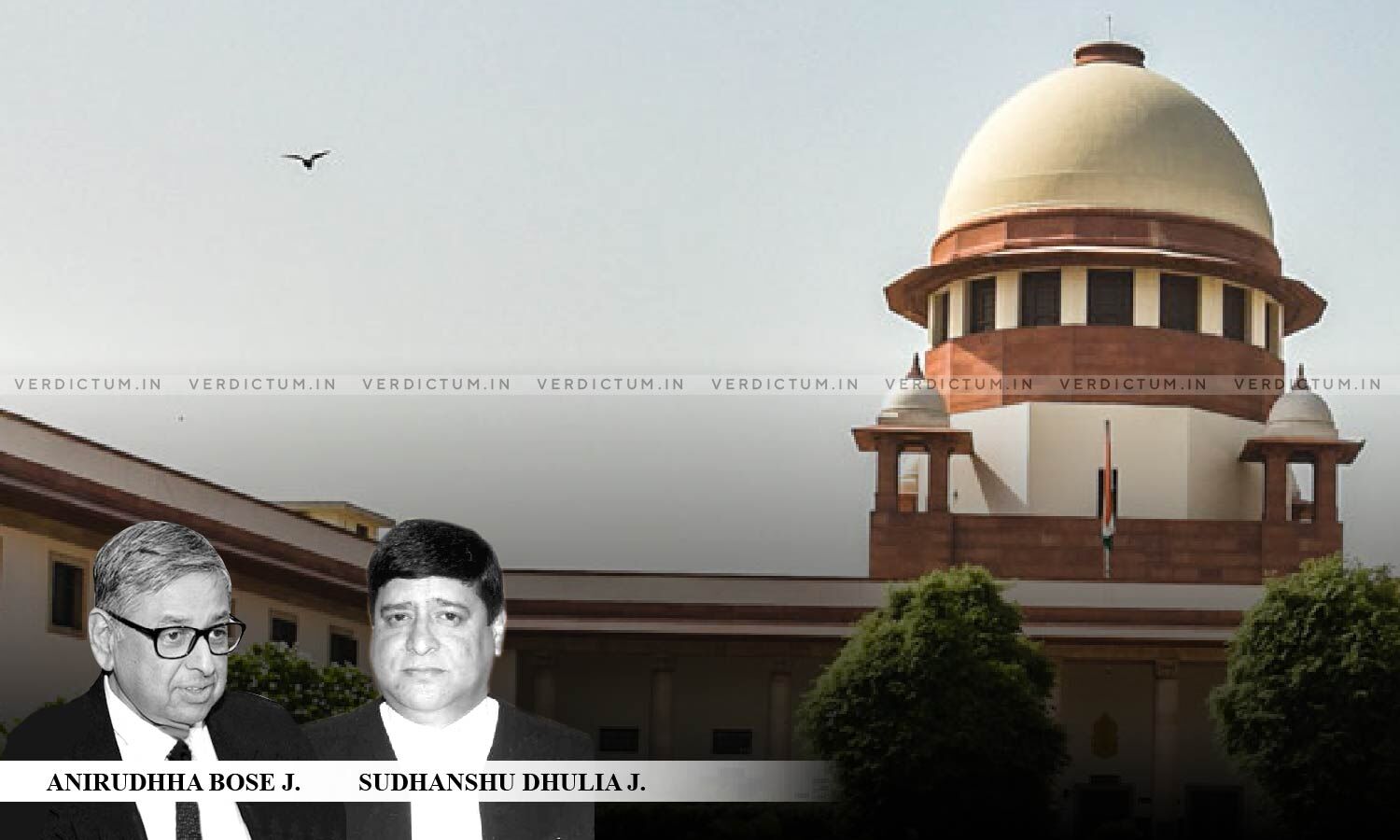U.P. Urban Buildings Act| Tenant Can Only Deposit Rent In Court As Long As Landlord Refuses To Accept It: SC
The Supreme Court has recently held that the tenant can only deposit rent in the Court, as long as the landlord has refused to accept the rent while referring to Section 30(1) of The Uttar Pradesh Urban Buildings (Regulation of Letting, Rent and Eviction) Act, 1972.
The two-Judge Bench comprising Justice Aniruddha Bose and Justice Sudhanshu Dhulia observed, “Let us again examine sub-section (1) of Section 30 under which the tenant can deposit rent in the Court. … the tenant can only deposit rent in the Court, as long as the landlord has refused to accept the rent. Once the landlord expresses his willingness to accept the rent, which in the present case he does by serving the notice dated 05.04.1995 (received on 10.04.1995), the tenant has no option but to deposit the rent to the landlord. This has not been done by the appellant.”
The last few lines of Section 30(1) of the said Act says, “… until the landlord in the meantime signifies by notice in writing to the tenant his willingness to accept it”.
Senior Advocate U.K. Uniyal appeared on behalf of the appellant while Advocate Vipin Gupta appeared on behalf of the respondents.
Brief Facts -
The tenant’s appeal arose out of rent and eviction proceedings from a Small Causes Court whereby the landlord’s suit for eviction was allowed and the tenant’s pleas were dismissed. The case of the landlord was that after the notice was served on the tenant, he refused to pay the rent within the stipulated period of one month, his tenancy stood terminated and he had therefore filed a suit for eviction before Judge, Small Causes Court, Saharanpur for his eviction.
The position of the tenant was that there was no occasion for him to deposit the rent on receiving the notice or on the first hearing under Section 20(4) of the 1972 Act, for the simple reason that he had never defaulted in payment of rent as the entire rent at the rate of Rs. 250/- per month was being deposited by him in the Court under Section 30 of the Act. The Small Cause Court gave a finding that the tenant was in arrears of rent, holding that the rent was Rs. 300/- per month and not Rs. 250/- per month which was never been deposited anywhere, and consequently a decree of eviction and recovery of rent was passed against the tenant.
The Supreme Court after hearing the arguments of both parties asserted, “The learned counsel of the appellant Shri Uniyal, sought to draw a parallel with the said case and would argue that in the present case as well the tenant has been depositing the admitted rent. However, as we have already noticed the facts of the two cases are entirely different. The above case therefore has no application to the present case.”
The counsel for the appellant had relied upon the case of Ajai Agarwal and Ors. v. Har Govind Prasad Singhal and Ors. (2005) 13 SCC 145 but the Court said that the facts of the said case were entirely different.
“In the case cited above, the tenant was given the benefit of sub-section (4) of Section 20 of the Act, as he had deposited the “admitted rent” before the first date of hearing. … This court was of the opinion, which was in fact the settled position of law, that in case a tenant deposits the admitted rent, under sub-section 4 of Section 20, he would get the benefit”, noted the Court.
Accordingly, the Apex Court dismissed the appeal.
Cause Title- Man Singh v. Shamim Ahmad (Dead) Thr. LRS.




